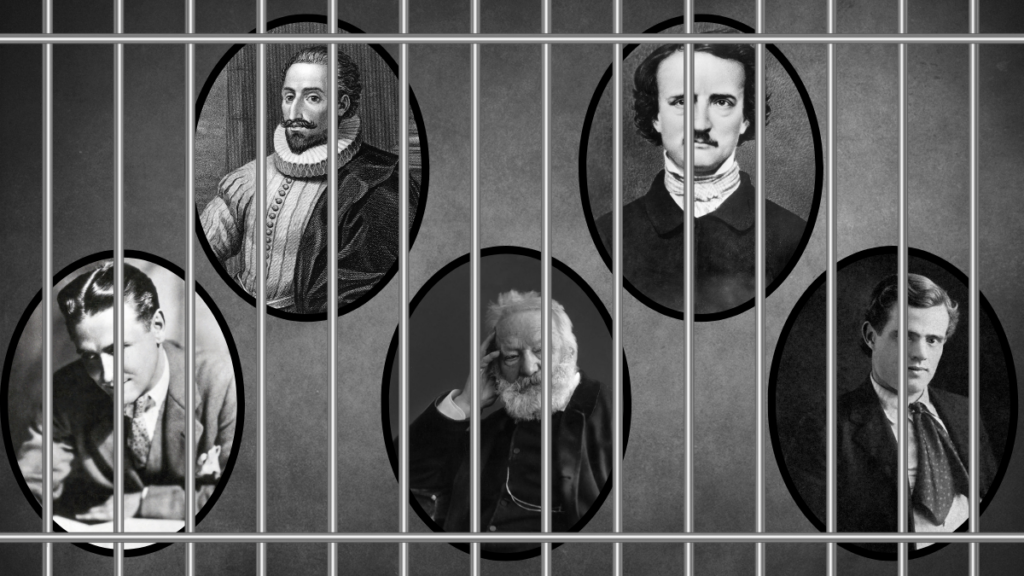By Brian Boone
Writers, authors, and poets, often live (and thrive) on the fringes of society, getting down to the nitty-gritty of the human experience in an authentic way that proves fruitful to their craft. And sometimes those artists find themselves on the police’s bad side. Here are five famous novelists and their not-so-famous brushes with criminality.
F. Scott Fitzgerald
After rising to the top of the literary world in the 1920s as author of dozens of popular short stories and novels like This Side of Paradise and The Great Gatsby, F. Scott Fitzgerald fought battles with alcoholism and accompanying health problems that would end his life at age 44. Between 1933 and 1937, Fitzgerald was hospitalized for alcohol-related issues eight times and arrested for public drunkenness of just as many occasions, always spending a night or two behind bars.
Jack London
London wrote grand tales of adventure set on the high seas and the wilds of North America, like The Call of the Wild, after living out the inspirations for many of his stories. At age 18, after dropping out of school to work in a cannery, he hopped a cross-country freight train heading for Niagara Falls, and he almost made it. In 1903, he was arrested by police in Erie County, New York, for the crime of vagrancy — essentially homelessness — and was imprisoned for a month.
Edgar Allan Poe
Legendary author Edgar Allan Poe had a terrible 1831. That year, the 22-year-old was expelled from the West Point Military Academy, witnessed his brother die from tuberculosis, and found himself so destitute he wrote a letter to his long-lost foster father, John Allan, asking for assistance. Poe had been arrested for failure to pay a debt of about $80 ($2,100 in 2022 money) and faced prison time if he didn’t pay it. Allan failed to loan or give Poe the money.
Victor Hugo
When emperor Napoleon III seized dictatorial control of France in 1851, popular author and politician Hugo (The Hunchback of Notre Dame, Les Miserables) publicly called the new leader a traitor. Napoleon responded by threatening arrest for Hugo. He avoided prison by agreeing to exile himself in Belgium, and then English territory, until 1870, when the French Republic was restored.
Miguel de Cervantes
In the 1580s, the future author of the epic Don Quixote worked a low-paying job for the Spanish Armada as a commissary — going door-to-door in rural areas of Spain as a taxman, collecting grain which would be used to feed sailors. Largely and wildly unsuccessful in his efforts to convince the citizenry to hand over the goods, Cervantes’ superiors in the Spanish Armada had him arrested on a charge of mismanagement and sent to prison… where he started writing.








